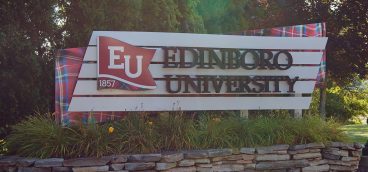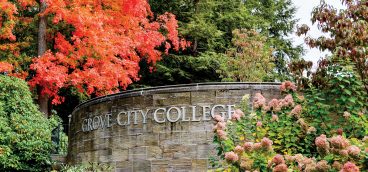
Editor’s Note: We’ve asked the Presidents of this region’s colleges and universities to respond in 250 words or less to the following question:
Given that attracting young people is critically important to this area and your institution, how will you overcome declining enrollment trends and how might civic efforts help you do that?
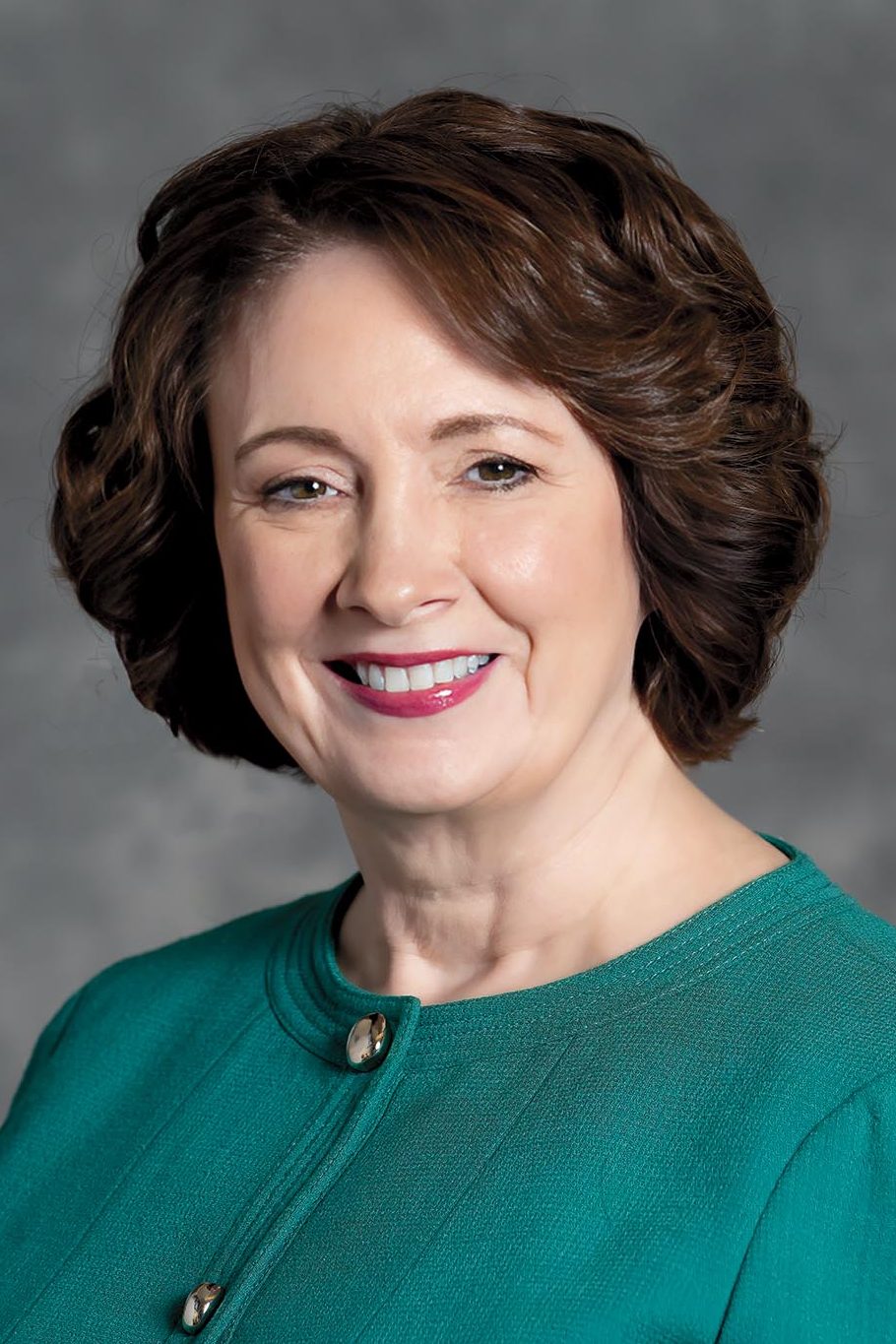
MARY C. FINGER, SETON HILL UNIVERSITY
All of us in higher education in the Pittsburgh region are acutely aware of the trends showing a continued decline in K-12 enrollment that is impacting, and will continue to impact, the number of local students enrolling in our institutions. At Seton Hill University, we have historically recruited students from outside the region, the state and the country and continue to do so to build a vibrant campus community. We have also worked to make a Seton Hill education affordable through significant financial aid efforts, and we have aligned our academic programs with regional workforce needs while maintaining a liberal arts foundation so that students are prepared not only for their first job but for their career. As a result, Seton Hill students tend to stay in the Pittsburgh region after graduation. A collective civic effort to tout the benefits of the region and its many institutions of higher education to young people outside of the area, as well as a strong commitment on the part of business, industry and nonprofits to offer internships to students that would keep them in the region after graduation, would go a long way to stemming population declines. If young people coming to our institutions have incentive to stay in the region to work and raise families, that will have a positive impact on the region’s population trends for generations to come.
FARNAM JAHANIAN, CARNEGIE MELLON UNIVERSITY
Carnegie Mellon has been fortunate to sustain positive enrollment trends over the years, allowing us to focus on developing productive civic partnerships and to apply innovations from our campus to our community to enhance economic opportunities. Of course, declining enrollment trends present a significant challenge for both the Pittsburgh region and our entire country, especially because higher education builds pathways to economic mobility and improves our national competitiveness. Our institutions play a central role in powering regional and national ecosystems through our education, research and innovation, and our importance as training grounds for young people will only grow in the coming years as the adoption of technology across nearly every industry accelerates and transforms our economy and society. I cannot overemphasize that strong, civic partnerships are essential to multiplying these efforts, bringing opportunities to more people and addressing future challenges. One example of our successful work with public and private partners is the $62.7 million Build Back Better Regional Challenge grant that the 11-county Southwestern Pennsylvania region received from the Economic Development Association. In collaboration with the Allegheny Conference and countless organizations across our region, we’re working to introduce robotics, AI and automation solutions to regional small- and medium-sized businesses and develop upskilling programs in urban and rural areas to provide workers and students pathways to careers in evolving legacy industries. Through intentional civic engagements, higher education institutions can attract talent by creating opportunities for them to catalyze social change and adapt to emerging technologies.

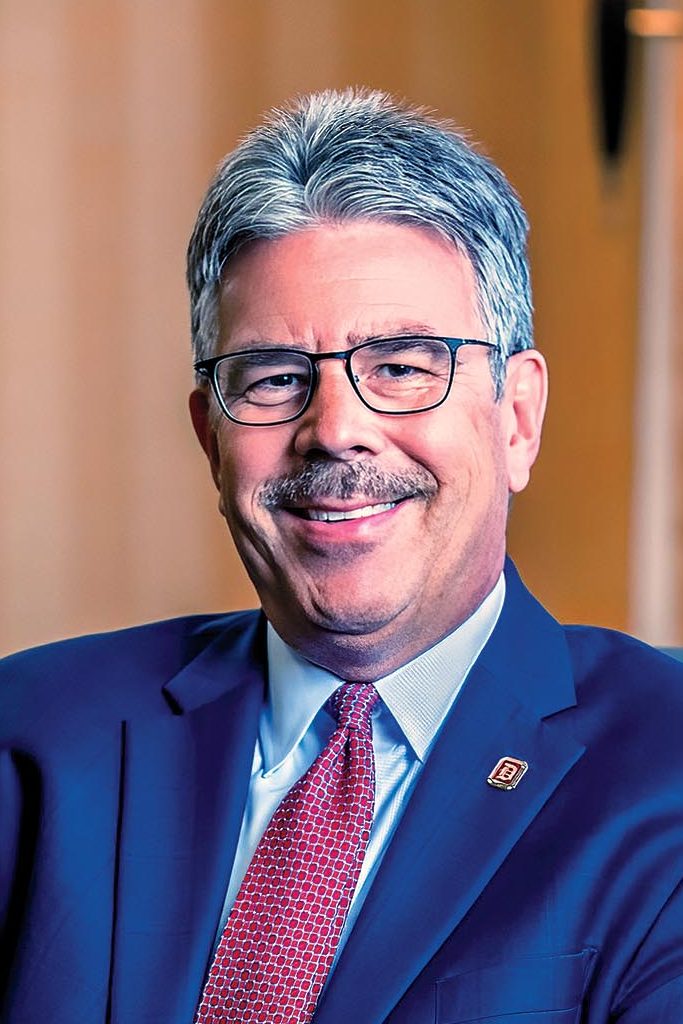
KEN GORMLEY, DUQUESNE UNIVERSITY
We’re fortunate that Pittsburgh is seen by so many students as a vibrant, fun and interesting place to go to college, and that Duquesne’s campus — located in a cozy, private and beautiful spot overlooking the city — occupies a prime location at the city’s epicenter. That has really helped us to recruit students. They can see opportunity clearly — literally from every part of our campus. Our new medical school has also raised our profile and will help improve lives in our region, which has spurred even more interest in Duquesne. We expect it will have a positive impact on enrollment and, through its partnerships with local and regional providers, help address shortages in primary care physicians throughout the area. Duquesne is part of many civic efforts in Pittsburgh, including historic preservation work, sustainability programs, legal clinics, small business support, educational outreach, health and wellness programs, and numerous other community engagements. These provide exciting opportunities for young people, including our college students, to get involved. Community groups, working with universities like Duquesne, can serve as a powerful engine for change and reimagination of this special region. We know that future college students continue to consider community involvement and service as very important. If they see Pittsburgh as a place that’s doing that well, and its universities are vibrant partners in that effort, this will be a potent force that will attract many more active, engaged people to our region.
JOAN T.A. GABEL, UNIVERSITY OF PITTSBURGH
Declining enrollment impacts nearly every higher education institution. Many of us are affected further by the “demographic cliff” beginning in 2025. The University of Pittsburgh is not immune to this trend, nor to questions about higher education’s value proposition — and more specifically, how we best serve our students and society as a whole. The challenge of our times in higher education is how to face this, and navigate through this disruption, without forgetting who we are and that we exist as part of a commitment from society to its members, and its members to society. Leaders must strategically lean into the well-defined strengths of our respective institutions. At Pitt, that means making sure that the experiences across our five campuses are meaningful and accessible — that they are places where students become their best selves in the classroom and beyond and are prepared for life and work thereafter. It means that our cutting-edge research and innovation differentiates us through transformational and community-engaged initiatives like BioForge, which helps define our region as a global life sciences leader. It further means elevating civic engagement, such as our Community Engagement Centers in Homewood and the Hill District, which serve as front doors to Pitt by offering collaborative spaces for research and service. In these and countless other ways, we are taking overt steps to leverage strengths, articulate commitments, engage partners and tell our story, rather than assuming our value proposition is clear. With these shared steps, we are poised to attract not only world-class students, faculty and staff, as well as supporters and partners to reinvest in our bargain, but we will also ensure that Pitt’s best days lie ahead.
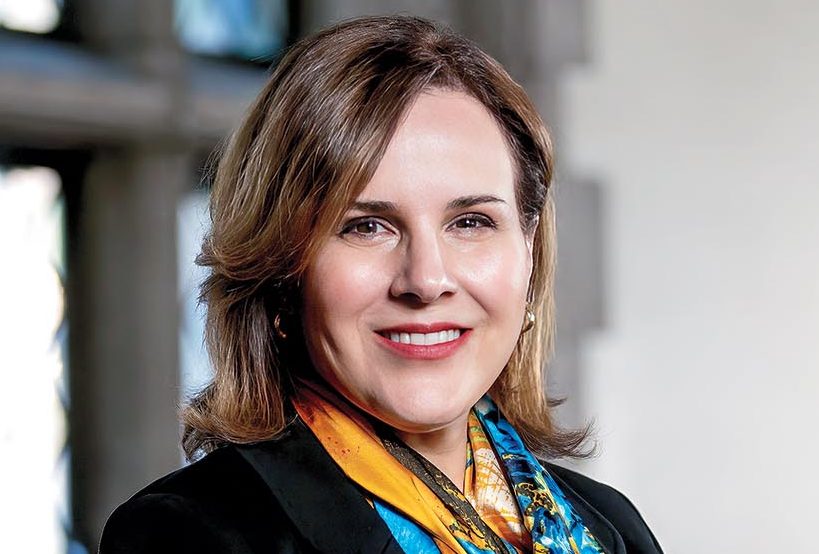

RHONDA PHILLIPS, CHATHAM UNIVERSITY
Institutions of higher education in Western Pennsylvania must continue to embrace change, adapt, and stay relevant to the needs of our region and today’s students. Colleges cannot, like the region’s other sectors, stay static anymore. For Chatham, embracing change has been a hallmark of our 150-year history, most recently illustrated by our shift to all-gender, which has doubled the size of our undergraduate body. Next, Chatham’s emphasis on degrees in the arts and sciences, health and well-being, and food and sustainability complement the economic, community and workforce opportunities within the Pittsburgh region (and beyond). It is this willingness to continually adapt, coupled with relevant and future-looking academic programs, that are critical to meeting the educational needs of the region and attracting more students from out-of-state and beyond to attend college here. From there, we must look to the past, where collaboration between educational institutions, government and industry helped fuel the last great Pittsburgh renaissance. Today, we need a renewed commitment to these types of civic efforts. This work has begun, such as The Allegheny Conference’s “Belong. Become. Be.” campaign that promotes Pittsburgh to high school students, college students, and young professionals. These and other civic efforts will help our local colleges and universities continue to thrive, attract young people to Pittsburgh, and stay engines of a vibrant and growing region.
DOUGLAS LEE, WAYNESBURG UNIVERSITY
With a deliberate commitment to education rooted in service, Waynesburg University strives to embolden students to pursue civic engagement with integrity and confidence throughout their lives. This commitment, weaved into our curriculum, mission and history, is a true differentiator and continues to attract service-minded students to our campus. We have recognized that when students serve our communities, they tend to care more about our communities. That correlation may be one of the most important outcomes of their education, as we prepare our students for tomorrow’s challenges, education and civic engagement. Throughout my presidency, I have been inspired by the quality of the young people I have met. It is my belief that today’s students will be the next great generation to serve on the world stage. Our Center for Service Leadership is home to our Bonner Scholarship Program, a unique scholarship opportunity that offers students financial assistance in return for a commitment to service. Bonner Scholars each serve an average of 10 hours per week in the community, becoming an integral workforce among local nonprofits. This, coupled with our Entrepreneurial Leadership Program, can have a huge impact on a student’s academic experience, as well as on the community. Even as higher education faces declining enrollment trends, we must remain focused on the initiatives and values that will help college graduates achieve success and thrive in their careers, and also those that will inspire continual growth and the drive to make a positive impact on the world.





